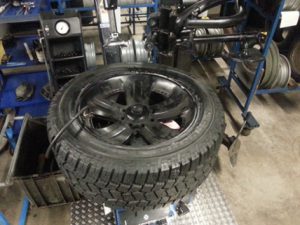Table of Contents
Tyres Save Fuel
Tyres Save Fuel
Tyres are a crucial element of your vehicles and inextricably linked to performance ; they provide fleet managers, or anyone responsible for fleets, with immediate notice of any potential issue. Having properly managed tyres as part of an efficient tyres maintenance system can only benefit fleets as well as […]

Tyres Save Fuel
Pump It Up: The Cost-saving Benefits of Appropriate Tyre Pressure at the Pump
Hi there! Ever pondered whether you could save money by doing something as easy as checking the pressure on your tyres? Stay tuned, as we will be exploring today how maintaining proper tyre pressure can help you avoid those annoying gasoline expenses. It’s about keeping your money in your pocket where it belongs, not simply about wear and tear and safety, though they are very important!
- Fuel Economy and Tyre Pressure: Is There a Relationship?
Let’s start by talking about science; don’t worry, I won’t get too technical. Your car/van needs more force to go forward when its tyres are underinflated, which results in increased fuel consumption. Because properly inflated tyres offer reduced rolling resistance, your vehicle will need less effort to go over Halifax’s hilly roads—or wherever your adventures may take you. - What Is Your Actual Savings Cap?
“Is all this fuss over a bit of air really worth it?” you may be asking yourself. Well, the figures pretty much say it all. Using tyres that are even slightly under-inflated relative to the prescribed level can result in a roughly 3% increase in fuel consumption. Although it might not seem like much, each time you fill up the tank, the amount adds up. Instead of wasting money on unnecessary fuel, inspect your tyres to save money. - The Local Spin: Why Drivers in Halifax Should Give a Damn
Come with me back to Halifax. Having properly inflated tyres is essential not just to save money but also to safely navigate our undulating hills and picturesque roads, such as the one that surrounds the Shibden Valley. Furthermore, it’s no secret that we occasionally get rain—an understatement of the year—and that driving in the rain is safer and better with properly inflated tyres. - Tyre Pressure Checks at Home
It’s not as hard as you would think to check the pressure in your tyres. There are air pumps at most petrol stations in this area, and many of them are free. Simply go ahead and fill them up if they appear a little low. You can find the appropriate pressure for your car in your handbook or on a sticker inside the driver’s door. Include it in your regimen; once a month is an excellent starting point. - Extended Tyre Life Equals Greater Savings
Another piece of information for you is that properly inflated tyres last longer. Paying for replacement tyres before necessary results from uneven or accelerated wear. Thus, you are prolonging the life of your tyres in addition to saving gasoline. More savings of cash! - Engage the Experts
Visit your neighbourhood garage for advice or a second opinion if you’re unsure of what you’re doing. We’re always here to assist, monitor your pressures, and ensure everything is operating as it should. That’s what we carry out!
There you have it, then. One easy approach to cut expenses and make sure your motor is operating at peak efficiency is to maintain the proper tyre pressure on your automobile. A tiny amount of upkeep might result in significant savings. Don’t ignore it; not only will you be saving money on petrol, but you’ll also be contributing to the environment. Win-win situation, huh?
Keep your tyres inflated and drive carefully!
Under inflated tyres will increase the amount of fuel that you car will use. The word that we use in the trade is “rolling resistance“. Hence, tyre manufacturers are always trying to improve, rolling resistance. For this reason, the tyres will be more efficient and also fuel Tyres Save Fuel.
There has been a lot of debate upon the importance or implementation of all-season tyres and whether they are really effective enough at providing consistent performance throughout all weather conditions, or whether it is better to use low-rolling resistance tyres. The latter, in general, minimize wasted energy by decreasing required rolling effort; and in the case of automotive applications, are particularly effective for improving vehicles’ fuel efficiency: approximately 5–15% of the fuel consumed by a typical car may be used to overcome rolling resistance.
Click here to view original web page at www.transpoco.com
- Michelin 4X4 CrossClimate - April 24, 2025
- Winter Tyres-A Women’s guide - April 23, 2025
- Caravan tyre safety Advice - April 22, 2025

